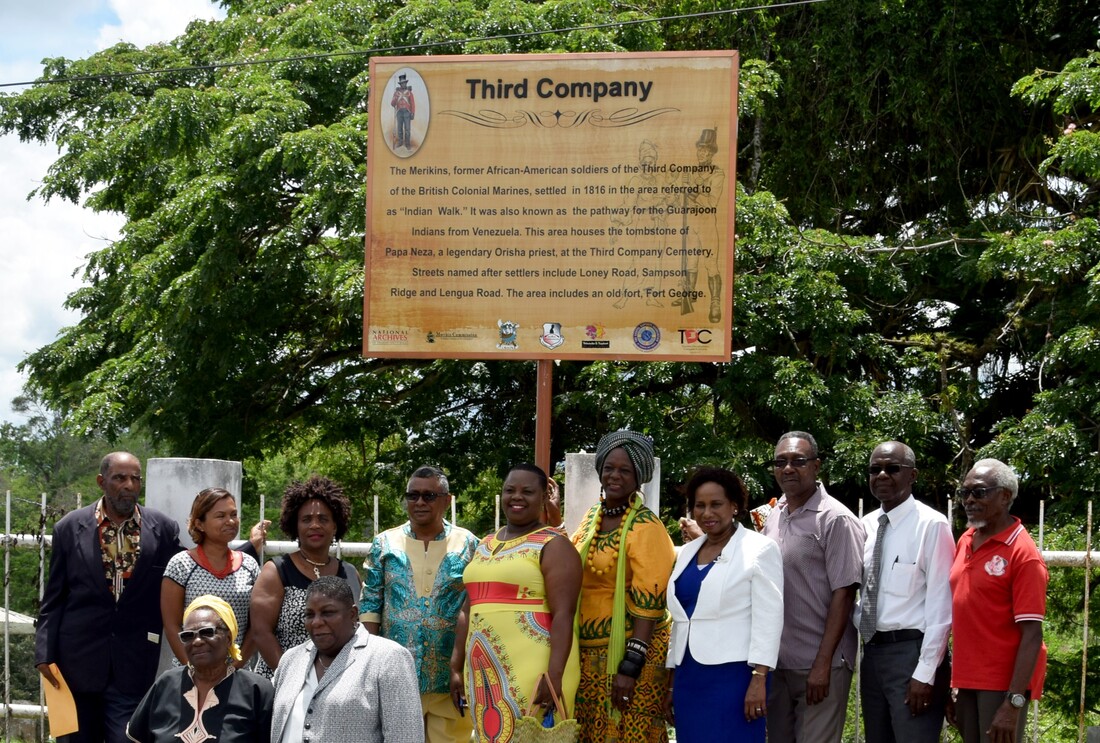|
One delight of reading historical fiction is the discovery of cultures I didn’t know existed. Reading Mycroft Holmes by Kareem Abdul-Jabbar and Anna Waterhouse, I wondered if the “Merikins” Sherlock’s brother encounters in Trinidad were a figment of the authors’ imagination. They turn out to be quite real.
During the War of 1812, hundreds of American slaves escaped to the British navy for a promise of freedom and sixteen acres of land. Afterward these “Merikins” and their families settled six hilltop “company villages” in southern Trinidad, corresponding to the six companies of their service in the Colonial Marines. The Merikins left a lasting mark on Trinidadian culture. They’re credited with introducing hill rice as a major crop. Merikin descendants celebrate a heritage that includes their Baptist faith and the gayap tradition of “each one, help one.” Historical markers identify the company village sites, two of which—Fifth Company and Sixth Company—retain their original place names. Photo from the National Archives of Trinidad and Tobago.
4 Comments
1/21/2020 03:42:20 pm
Thanks for reading! When I read of these "Americans" who called themselves "Merikins," I wondered if the author was just having fun. Though some sources attribute the name to a peculiarity of the former slaves' speech, it seems to me the word is commonly pronounced that way, or close enough as makes no difference.
Reply
NC Bradley
2/29/2024 04:37:54 pm
So proud and blessed to be the progeny of this brave lot who settled in 3rd Company "Hard Bargain/Williamsville" Thank you for posting!
Reply
Leave a Reply. |
AuthorI'm a historian who writes novels and literary nonfiction. My home base is Madison, Wisconsin. Archives
July 2024
|

 RSS Feed
RSS Feed